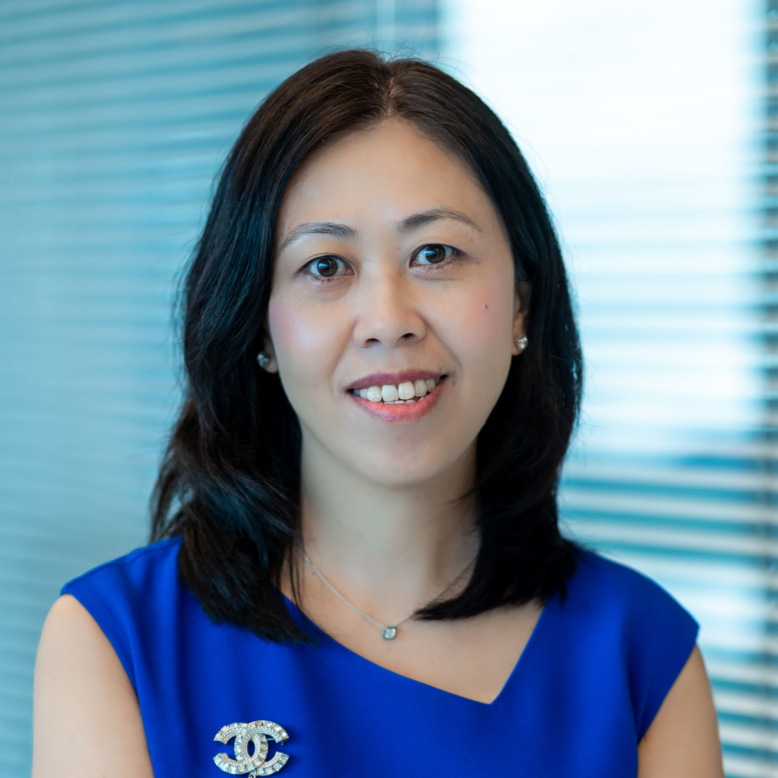Employee Stories
Ivy Yee
Empowering Women in Technology

In the rapidly changing technology industry, staying motivated and relevant can be a challenge
However, for Ivy Yee, Head of Production Engineering and Site Reliability Engineering (SRE) at Standard Chartered, exploring cutting-edge technologies has kept her motivated throughout her career. With over 20 years of experience, Ivy has witnessed the evolution of diversity and inclusion in the industry and has actively contributed to creating a more equitable workplace.
What are the three most important takeaways from your career journey?
- Embrace the challenges: The path to success often involves overcoming obstacles. Remember, no pain, no gain – be open-minded, curious and prepared to put in the effort to learn.
- Cultivate gratitude: Express gratitude for the people who support you, the opportunities that come your way and every experience you encounter along the journey. Recognise the value of the connections you make and the lessons you learn. Gratitude brings a perspective and helps you to appreciate your growth and progress.
- Speak up and take ownership: Take responsibility for your own career development. Don’t be afraid to voice your ideas, concerns, and ambitions. Be proactive and avoid relying solely on your manager or colleagues to navigate your professional path. Take charge, assert yourself, and actively participate in shaping your own success.
How do you foster a culture of innovation and collaboration within your team, and what role do you believe diversity plays in driving these outcomes?
In my team, we recognise the need for innovation to enhance our processes and become more efficient. To promote innovation, we hold regular meetings where team members can openly share their ideas. Our rewards and recognition system is also geared towards acknowledging teamwork and out-of-the-box solutions.
Being a part of a team with such diverse perspectives, backgrounds and experiences allows us to implement more comprehensive and well-balanced solutions. Different viewpoints bring fresh ideas to the table, challenge existing norms and encourage creative problem-solving. By embracing diversity, we have created an environment that nurtures innovation and collaboration, enabling us to achieve remarkable results as a team.
How do you instil a culture of continuous learning within your team?
At Standard Chartered, we prioritise a culture of continuous learning and this mindset is ingrained from top to bottom. In the CCIB division, each team member is encouraged to dedicate a minimum of five days a year to enhance their skills and knowledge. I believe in leading by example, so I ensure that I not only advocate for continuous learning but also actively participate in it myself. I complete various learning initiatives and openly share my experiences with my team, inspiring them to do the same. By embracing a culture of continuous learning, we stay ahead of the curve, adapt to changing demands, and consistently enhance our capabilities as a team.
What skills and attributes have helped you to succeed in the technology industry and how can a fresh graduate develop those skills?
Having the right mindset is crucial for success in the tech industry. The essential skills that set individuals apart are problem-solving and analytical thinking as they enable you to tackle complex challenges and find innovative solutions. As you progress in your career, people and soft skills become increasingly important. These include communication, teamwork, leadership, and adaptability. You can develop these skills through real-world experiences, continuous learning and actively seeking feedback.
For young graduates, I recommend seeking opportunities to enhance their problem-solving skills through projects, internships and relevant coursework. Engaging in extracurricular activities and joining professional organisations can help develop vital people and soft skills. Remember, a combination of technical expertise and well-rounded skills will pave the way for success in the dynamic tech field. Stay curious, embrace challenges, and never stop learning.
What advice would you give to young women who want to be leaders in the technology industry and what steps can they take to achieve that goal?
Many young women have felt the need to compromise their career ambitions for family or personal reasons. However, it is possible to have a successful career and a fulfilling personal life. While it can be challenging, with a strong support system, it is achievable.
- Be clear about your goals and let your purpose guide your success. Despite the challenges and distractions you may face, stay determined and focused on your dreams.
- Continually expand your knowledge and skills.
Stay up to date with the latest technological advancements and seek guidance from mentors and experienced professionals. - Build a strong network and leverage it for career opportunities.
- Remember, success is not only about job titles but finding fulfilment in both your personal and professional life.
- Embrace the journey, stay resilient and always believe in your abilities. With the right mindset, determination, and support, you can achieve leadership roles in the tech industry.
How have you seen diversity and inclusion efforts evolve, and what do you think still needs to be done to create a more equitable workplace?
Over the past few years, I’ve witnessed significant progress in achieving equality in the workplace. We’ve made commendable progress in Singapore, but it’s also important to acknowledge that we still have a lot of work ahead of us. Creating an equal workplace requires ongoing dedication. It involves embracing diversity, providing equal opportunities and valuing the contributions of every individual. This means addressing biases, implementing inclusive policies and fostering a culture of respect and belonging.